African Libraries observe the 2024 Open Access Week
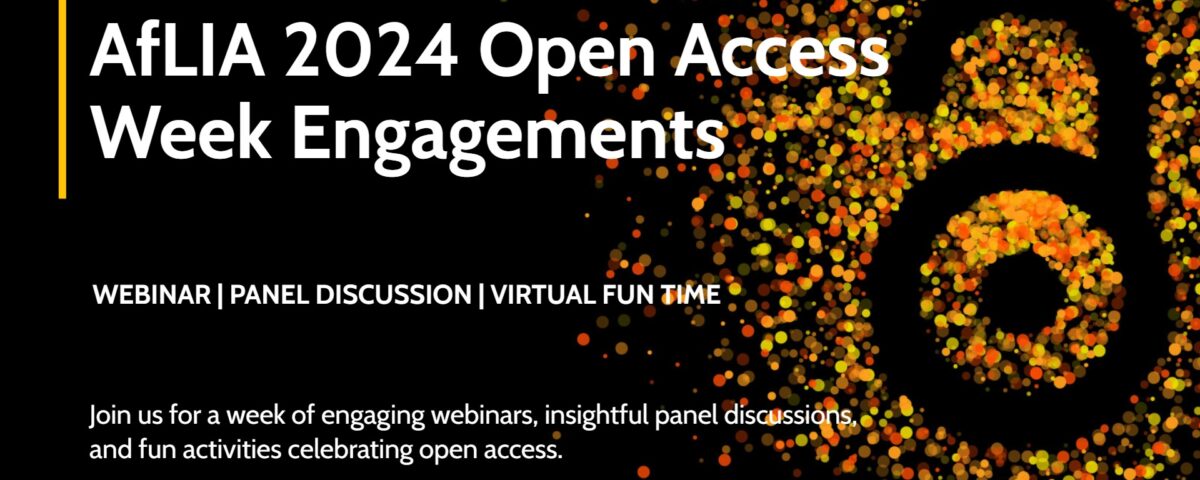
14 OCTOBER 2024
COVID-19 taught the entire world a critical lesson; what happens in location A in the globe has great potentials to affect what happens in locations B-Z. Knowledge about the virus, prevention, management and vaccination had to be spread equitably around the entire world in order to check the pandemic. Good governance and industrialization happen when people have access to knowledge that will help them to innovate, hold organs of government to their word and create the realities that would serve their communities better. Knowledge therefore is the key to sustainable development. However, when knowledge is thrown behind paywalls and closed doors, such knowledge has zilch impact.
The Open access movement seeks the removal of barriers (technical and legal) and costs that hinder access to electronic knowledge and data(academic and otherwise). The access could mean reading, downloading, distributing, printing, link to full texts of articles and not just abstracts, and crawling electronic knowledge for indexing.
An often overlooked unique advantage of Open Access is that it drives knowledge equity as it allows hitherto ‘unknown’ voices to be a part of intellectual discourses as research from all corners of the world become accessible and new perspectives and realities become added to the global body of knowledge.
The OA week is celebrated annually in the 3rd week of October. The week is devoted to seminars, webinars, workshops and other activities that highlight the significance and impact of open access. The theme for this year’s 2024 OAWeek is “Community over commercialisation“. What does that mean? AfLIA as the umbrella body for librarians in Africa will celebrate the week with three major activities that would help them understand more about Open Access generally and the theme.
Activity line-up for the 2024 #OAWeek
| No. | Activity | Title and Speakers | Details |
| 1 | WEBINAR | Topic: An introduction to Open Access Publishing for Academic Librarians Speaker: Dr. Tony Lelliott (OER Africa) | Monday, 21st October, 2024 11:30am UTC |
| 2 | PANEL DISCUSSION | Theme: Community over commercialisation Speaker: Bosun Obileye, the Regional Engagement Specialist Africa, DataCite Discussants: Dr. Mac-Anthony Cobblah, Chair, Academic Libraries Section, AfLIA & Prof. Ebenezer Bonyah, Director, Directorate of Research, International Programmes and Institutional Advancement, AAMUSTED | Tuesday, 22nd October, 2024 11:30am UTC |
| 3 | FUN TIME | Test your knowledge of Openness A short quiz designed to test your knowledge about openness in fun and interactive way | Friday, 25th October, 2024 11:30am UTC |
Registration
Click button below to register for the sessions. You will receive periodic reminders via email as each activity draws close.
Speakers & Discussants
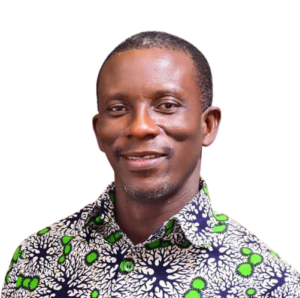
Professor Ebenezer Bonyah is a full Professor at the Department of Mathematics Education, Akenten Appiah-Menka University of Skills Training and Entrepreneurial Development Kumasi Ghana (AAMUSTED). He undertook a Postdoctoral Research Fellowship Programme at Vaal Technology University, South Africa in the Department of Mathematics in the year 2016. He obtained his Ph.D. Degree in Applied Mathematics from the Kwame Nkrumah University of Science and Technology (KNUST), Kumasi, Ghana in 2014. Prof. Bonyah is a Reviewer of many International Accredited Journals across the world and serves as an editorial board member of eight (8) peer-reviewed journals.
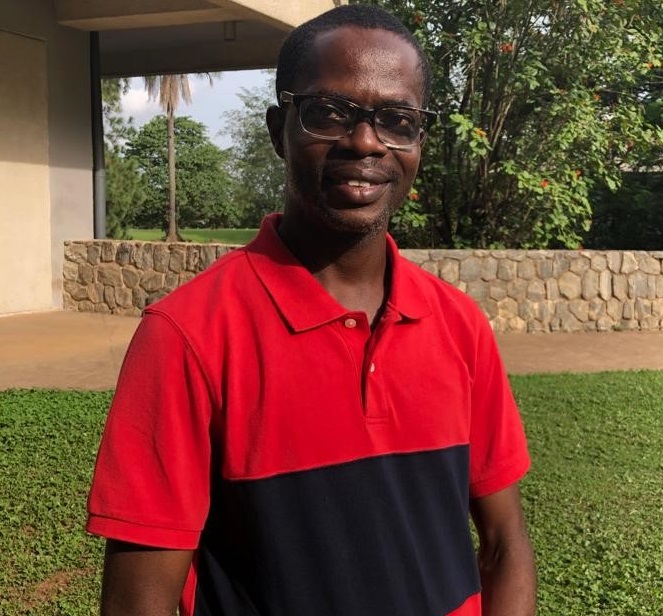
Olatunbosun Obileye (Bosun) is DataCite’s Regional Engagement Specialist for Africa, dedicated to advancing open science and research management across the continent. He supports African institutions by promoting DataCite’s Persistent Identifiers (PIDs), which enhance research accessibility and visibility. Bosun’s work encompasses Open Access policy development, PID strategies, ontology, metadata schemas, and Identity and Access Management, ensuring that libraries and research institutions meet global standards. His roles as Co-Chair for IASSIST Professional Development, ISC2 Exam Development Volunteer, and former co-chair of the FAO/CGIAR AGROVOC Working Group reflect his commitment to fostering data sharing and knowledge dissemination. Bosun empowers African institutions and policymakers to lead in the open science movement, leveraging DataCite’s achievements to build a robust and inclusive research ecosystem.
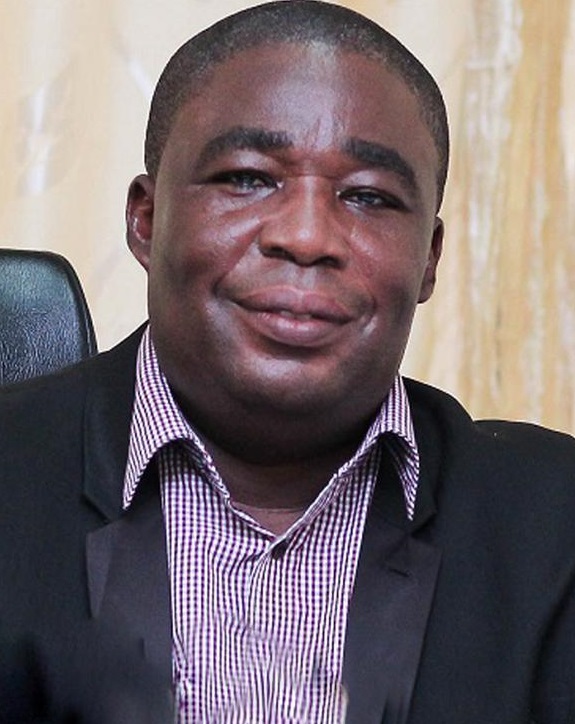
Dr Mac-Anthony is an Information Scientist, Professional Librarian, Researcher, Lecturer, Author and Consultant with 24 years’ experience in Research and Academic Environment. He holds a PhD in Information Science, MBA in Human Resource Management, MA in Library Studies, Bachelor of Arts History and Archaeology and a Certificate in Scientific Information Management. He is currently the University Librarian for the University of Cape Coast. Dr Cobblah is also the Chair for the Management Committee of the Consortium of Academic and Research Libraries in Ghana (CARLIGH) and a Licensing Coordinator for EIFL. He is also a Chair for Academic Libraries and Library Consortia Section of the Africa Library Associations and Institutions (AfLIA). He was a former Country Coordinator for International Network for the Availability of Scientific Publications (INASP). He is a reviewer and editor for several International Journals in his field of specialisation.
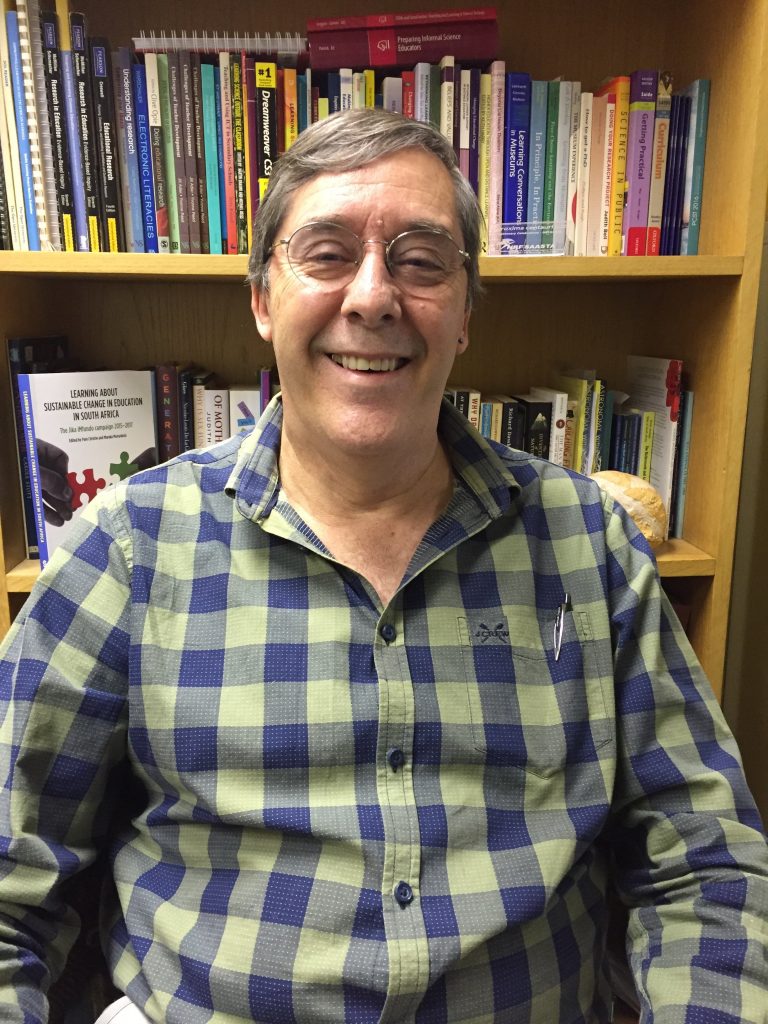
Dr Tony Lelliott works in the area of teacher education with Saide, an NGO based in Johannesburg, South Africa. At Saide he has worked on several projects including OER Africa, the National Senior Certificate for Adults (NASCA) and African Storybook. Prior to joining Saide, Tony was an Associate Professor, an NRF C2 researcher, and worked with pre-service teachers, as well Honours, Masters and PhD students at the University of the Witwatersrand in Johannesburg. Tony is the author of 25 publications in refereed journals and books and has supervised 10 Doctoral and 13 Masters graduates to completion.
Technical requirements
Upon registration, reminders will be sent to all registrants periodically. This webinar will be hosted on Zoom Conferencing Platform. Participants, who do not have Zoom on their mobile devices and or computers, need to download, install and create an account on Zoom ahead of time (CLICK TO DOWNLOAD). Webinar attendees are encouraged to join early, preferably 15 minutes before the start of the webinar, as one may need time launch the application. The speaker will use a webcam to connect with attendees. Audio and video for the session will be streamed over computer speakers. Attendees are therefore encouraged to connect with a headset or earpiece for maximum utility.
Webinar materials
A list of resources and further information will made be available at the end of the webinar, to enable thorough engagement with the webinar content. All registrants will have access to the presentation slides. The webinar recording will be uploaded on AfLIA Youtube Channel soon after the webinar to facilitate continuous engagement with the webinar content by webinar attendees and non-attendees. Please note that the webinars do not involve certificate of participation.
Enquiries
For further enquiries and any assistance relating to the webinar, contact us at afliacomm@aflia.net.
